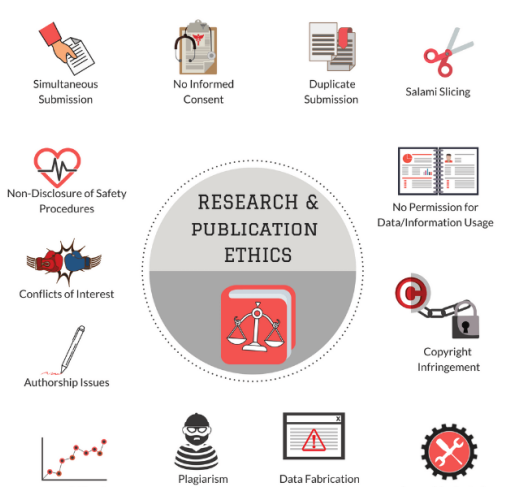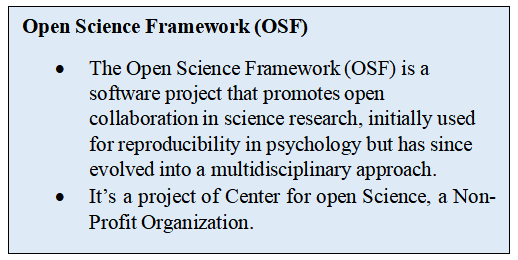- Courses
- GS Full Course 1 Year
- GS Full Course 2 Year
- GS Full Course 3 Year
- GS Full Course Till Selection
- MEP (Mains Enrichment Programme) Data, Facts
- Essay Target – 150+ Marks
- Online Program
- GS Recorded Course
- NCERT- First Ladder
- Polity
- Geography
- Economy
- Ancient, Medieval and Art & Culture AMAC
- Modern India, Post Independence & World History
- Environment
- Governance
- Science & Technology
- International Relations and Internal Security
- Disaster Management
- Ethics
- Current Affairs
- Indian Society and Social Issue
- CSAT
- 5 LAYERED ARJUNA Mentorship
- Public Administration Optional
- ABOUT US
- OUR TOPPERS
- TEST SERIES
- FREE STUDY MATERIAL
- VIDEOS
- CONTACT US
Ethical Aspects of Data Manipulation in Research
Ethical Aspects of Data Manipulation in Research
27-10-2023

Why in News?
Recently, Independent investigators exposed data manipulation involving Harvard Business School professor Francesca Gino, who was found guilty of research misconduct for studies on honesty and unethical behavior.
Reasons of Committing Misconduct
-
Root Cause
- Researchers often use incentives to generate groundbreaking findings, leading to alternative hypotheses, but this can sometimes result in shoddy or fabricated work.
- Scientific misconduct, spanning from the 1912 Piltdown Man hoax to recent cases like Diederik Stapel, persists in various fields and forms today.
-
Motivators and Contributing Factors to Misconduct:
- Misconduct in research is attributed to low detection risk, mentoring styles, and lack of comprehensive national and institutional policies for penalizing misconduct.
-
Systematic Causes of Misconduct:
- Funding and Pressure Relief: To reduce researchers' pressure, it's suggested to allocate a portion of research grants for quality-control activities, enabling more comprehensive and efficient investigations.
- Support for Replication Studies: Financial aid in the form of cash rewards can be a valuable method for supporting replication studies, which verify the results of other studies.
Ethical concerns of Misconduct
-
Long term Consequences
- Scientific misconduct, regardless of its scale, can have severe consequences, particularly when it involves influential figures in a specific field.

- For instance, Dr. Gino, a prominent scientific leader, could potentially harm years of research if his misconduct is revealed.
-
Widespread Implications of Misconduct
- The compromised work in numerous papers and findings can undermine the integrity of years of scientific inquiry, not just a single case.
-
Lack of Transparency in Scientific Publishing
- Scientific publishing is often responsible for perpetuating research misconduct, often without proper investigation or correction of misconduct signs in published papers.
- Recent events, such as Nature retracting a paper due to data discrepancies, underscore the inconsistency in the publication process.
How to deal Misconduct?
-
Addressing Scientific Misconduct with the OSF

- The Open Science Framework (OSF) is a novel method to combat scientific misconduct by promoting pre-registration, a process that involves establishing a study's hypotheses, methods, and analyses.
- The OSF is a non-profit organization's free, open platform that supports research and collaboration.
-
Ambitious 'SCORE' Project
- The OSF team has launched the 'Systematizing Confidence in Open Research and Evidence' (SCORE) project, aiming to improve research credibility through automated tools for rapid and accurate confidence scores.
-
Involve More Stakeholders
- The scientific community faces fraud through inconsistent methods across institutions, leading to unofficial punishments for researchers willing to cooperate. Addressing this requires involving diverse stakeholders.
Way Forward
- The scientific community faces fraud through inconsistent methods across institutions, leading to unofficial punishments for researchers willing to cooperate. Addressing this requires involving diverse stakeholders.
- A reevaluation of science, especially among influential figures, is needed to acknowledge its complexity and the need for improved methods and norms.
- The implementation of technology and incentives is crucial for fostering continuous self-assessment and improvement, making it a standard practice rather than a response to 'special' circumstances.
Conclusion
In this digital universe of information and technology need is for robust and multi-disciplinary R&D for mitigation, utilizing the might of novel technologies like AI for complex issues like misuse of data of research.



